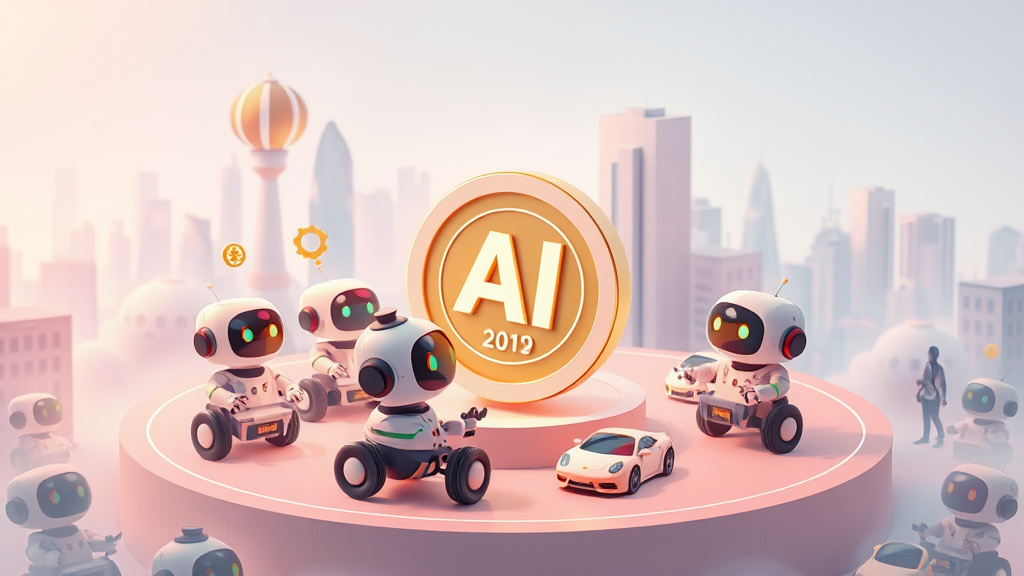The intersection of artificial intelligence (AI) and various industries is rapidly evolving, with significant advancements in AI technology and its applications. This news brief highlights key developments in AI, including government responses to AI plans, AI chip stocks, healthcare AI, and the future of business.
Government Response to AI Plans
The federal government's Request for Information (RFI) on the "Development of an Artificial Intelligence Action Plan" has received comments from various sectors, including the public, private, and nonprofit. The comments generally advise that the plan should prioritize risk management and human rights. The state of New York argued for the administration to prioritize three areas: global competitiveness and commercialization, intellectual property and research security, and energy innovation and sufficiency.
AI Chip Stocks
Taiwan Semiconductor Manufacturing (TSMC) is emerging as a top player in the foundry business, with a 67% market share in the global third-party foundry market. The company's shares are trading at a bargain price, with a P/E ratio of 19.2, nearly identical to its three-year average multiple. TSMC's aggressive expansion roadmap and high and margins make it a promising investment opportunity.
Healthcare AI
Tempus AI (TEM) is gaining traction on Wall Street, with its stock rising by 40% so far this year. The company has gained momentum following its acquisition of Deep 6 AI, strengthening its clinical trial matching capabilities. Major acquisitions and partnerships have played a key role in Tempus AI's market growth, solidifying its position in healthcare AI.
Future of Business
Nvidia CEO Jensen Huang predicts that every company will become an "AI factory," generating tokens that will be used to improve and run AI systems. Tokens are numerical representations used by AI models to process and understand data. Companies will need to produce intelligence, like a token factory, to stay competitive in the future.
AI in Robotics and Autonomous Vehicles
Nvidia's Cosmos-Transfer1 makes robot training freakishly realistic, addressing a persistent challenge in physical AI development. The model enables developers to create highly realistic simulations for training robots and autonomous vehicles. This breakthrough enables more nuanced control over generated environments, significantly improving their realism and utility.
Essential AI Skills for Non-Tech Professionals
Many professionals assume that AI is something only technical teams need to understand. However, AI is showing up in nearly every workplace, affecting the way teams communicate, make decisions, and serve customers. For employees, learning AI skills makes them more valuable to their companies and more competitive in the job market. Companies are already using AI to streamline workflows, and employees who know how to use it will be ahead of those who do not.
Key Takeaways
- The federal government's AI plan should prioritize risk management and human rights.
- TSMC is a top player in the foundry business, with a 67% market share in the global third-party foundry market.
- Tempus AI is gaining traction on Wall Street, with its stock rising by 40% so far this year.
- Every company will become an "AI factory
Sources
- Govt., Industry Respond to Federal Info Request on AI Plan
- If I Could Only Buy 1 Artificial Intelligence (AI) Chip Stock Over the Next Decade, This Would Be It (Hint: It's Not Nvidia)
- Healthcare AI Gains Traction as Tempus AI Stock Was Up 40%
- Nvidia, xAI join $30B AI investment consortium backed by Microsoft
- Nvidia CEO Jensen Huang says every company will become an 'AI factory.' Here's what he means.
- AI beats humans at meme humor—but the best joke is still human-made
- Anthropic’s Response to Governor Newsom’s AI Working Group Draft Report
- If I Could Only Buy 1 Artificial Intelligence (AI) Chip Stock Over the Next Decade, This Would Be It (Hint: It's Not Nvidia)
- What Are The Most Essential AI Skills For Non-Tech Professionals?
- Nvidia’s Cosmos-Transfer1 makes robot training freakishly realistic—and that changes everything
